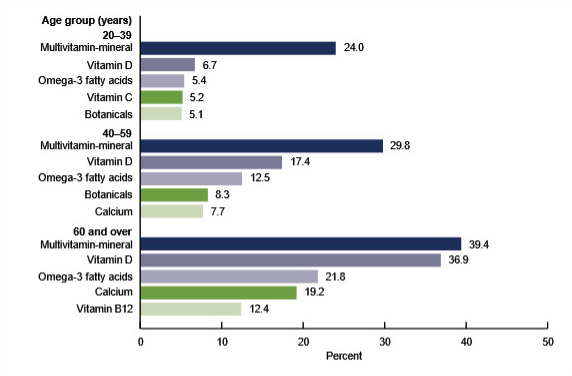Dietary Supplements & Botanicals
If you are like me, you are fighting the aging and physical health battle which means that dietary supplements are a part of your life. It seems like many of us battle with sleep, high cholesterol, energy, lack of sun exposure, weakening bones, heartburn, anxiety and even pain. Chances are that this morning, after you brushed your teeth, you took a supplement. In fact, here are some statistics:
The 2023 Council for Responsible Nutrition (CRN) Consumer Survey on Dietary Supplements confirms the mainstream status of supplements and the important role they play in the lives of most Americans, with 74 percent of U.S. adults taking dietary supplements, and 55 percent qualifying as “regular users.”
92 percent of users agree that dietary supplements are essential to maintaining their health.
Dietary supplements are comprised of either natural or synthetic vitamins, minerals, amino acids, enzymes or other substances meant to supplement the diet with essential nutrients. Botanicals are a subset of supplements and are always plant-derived. They include herbs, roots, leaves, flower and extracts. Botanical products often focus on specific plant compounds with potential health benefits.
The most common types of supplements used by adults in the United States are multivitamin-mineral supplements, vitamin C, vitamin D, vitamin B12, calcium, and omega-3 fatty acids. In age groups under 60, botanicals are also consumed.
The Dietary Supplement Health and Education Act (DSHEA) of 1994 regulates dietary supplements. Under DSHEA, the FDA holds no authority to approve dietary supplements for safety and effectiveness before they are marketed.
This video from the FDA is helpful to explain their role in dietary supplements and it outlines the requirements for packaging, labeling and warnings. It also explains that specific health claims are not permitted.
As a consumer of a botanical supplement (kratom), I often hear pain patients say, “I never take anything into my body that is not FDA approved”. Based on the above statistics, these consumers most likely consume non-FDA approved supplements every day!
Just because a dietary supplement is not FDA approved does not mean that it is unsafe. The consumption of any substance requires consumer responsibility and accountability. This is why labeling is so important. Because health claims are not permitted by the manufacturers of dietary supplements, it can be difficult for consumers to determine if the supplement is right for them. Labels can be confusing. What does it mean that my Vitamin D supplement says: Serving Size = 1 softgel = 250% of my % Daily Value? Oftentimes consumers consult Dr. Google for information. The internet can be helpful for many common supplements, but when you entire the universe of botanical supplements, gleaning information from the internet can pose a challenge.
Medical doctors are often not trained in recommending or even advising about botanical supplements. Patients are instructed to “ask your doctor”, but in many situations, the physician Googles the supplement at the appointment and makes a recommendation based on the first one or two search results.
Most consumers trust their doctors. This means that when a pharmaceutical is prescribed, most patients are given a list of “possible side effects”, and then fill and consume (hopefully, as prescribed). Since the pharmaceutical is FDA approved it cannot be harmful. Right? Actually, the answer is WRONG.
Anyone who has been on pharmaceuticals understands side effects. I myself had permanent short-term memory impairment due to being on high-dose Gabapentin for one year. Yet patients do not seem to give much thought to the physical impacts (especially negative) that these medications can cause. For common dietary supplements consumers seem to follow suit.
For example, not much research is done to look at the long-term effects of high Vitamin D consumption. On the other hand, when dietary supplements are in the botanical family, both physicians and consumers become distrusting and dismissive.
In no way am I demonizing pharmaceuticals. They serve an important purpose. What I do believe is that physicians should not be dismissive and skeptical of botanical supplements. Kratom, Moringa, Ashwagandha, Valarian Root, Echinacea, Tumeric and others can be incredibly helpful for the health and wellbeing of consumers. Physicians should be open to legitimate questions from patients regarding these supplements without judging, demonizing, dismissing and even fearing them.
A human body is a complex combination of interconnected systems, where each part plays a vital role in maintaining overall health and function. This "symphony" includes the nervous, circulatory, endocrine, and numerous other systems, all working in coordination to synergically create health and wellness. Dietary supplements and botanicals can enhance our overall health, reduce inflammation and pain, increase immunity, strengthen our bones, lower cholesterol, aid in digestion and even support our mental health. It is important to educate ourselves about dietary supplements and botanicals, stop fearing the “Non-FDA Approved” stigma, and consume only tested and property manufactured products.
So tonight, I will sleep well and in less pain thanks to my sleep supplement (Melatonin, Gaba, L-Theanine) and my kratom. Throw in a prescription estrogen patch and life is good!
References

